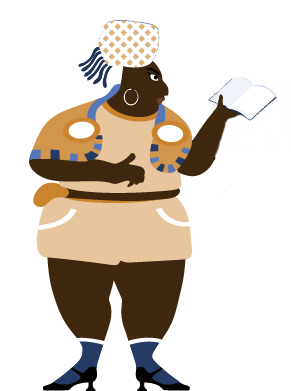About the Academic Fellowship
Fellowship workshops
Writing Clinic
The Writing Clinic provides workshopping space for Fellows and scholars producing theses, dissertations, and other writing projects. Fellows receive feedback and support as they translate their research into powerful narratives for broad audiences.
Theory Clinic
The Theory Clinic is primarily a reading and discussion space, where Fellows take deep dives into grounding theoretical works by scholars in the fields of critical race, postcolonial, indigenous, and queer theory, among others.
Colloquium
The Colloquium invites a guest speaker to share their work in conversation with Fellows. Of particular interest are scholars who use anthropological, sociological, historical, and philosophical methods, and who have special interest in questions of race, gender, and sexuality and different strategies of inclusion and exclusion that transform the production and consumption of knowledge. Fellows discuss and engage with speakers’ pre-circulated works-in-progress, while receiving professionalization advice.
Fellows Circle
The Fellows Circle, aimed at addressing the dearth of community spaces in traditional academic institutions, is a more casual gathering space for Fellows to convene, share ideas, and find support. Our goal is to foster an environment of mutuality and collaboration—ultimately a space where Fellows can thrive.
The BBQ+ Academic Fellowship Program is a core component of our initiatives, providing mentorship, career development advice, and writing support to underrepresented scholars (broadly and intersectionally defined) as they establish themselves either within academic institutions or as independent educators and researchers. Our Fellows come from all levels of higher education, from undergraduate students to postdoctoral scholars.
Throughout their year-long tenure, BBQ+ Fellows:
Work on their individual research and writing projects.
Collectively explore the intersections of critical race, postcolonial, indigenous and queer theory.
Closely interact with and get exposure to leaders in social justice, education, and activism.
Build intergenerational and interdisciplinary communities of support.




